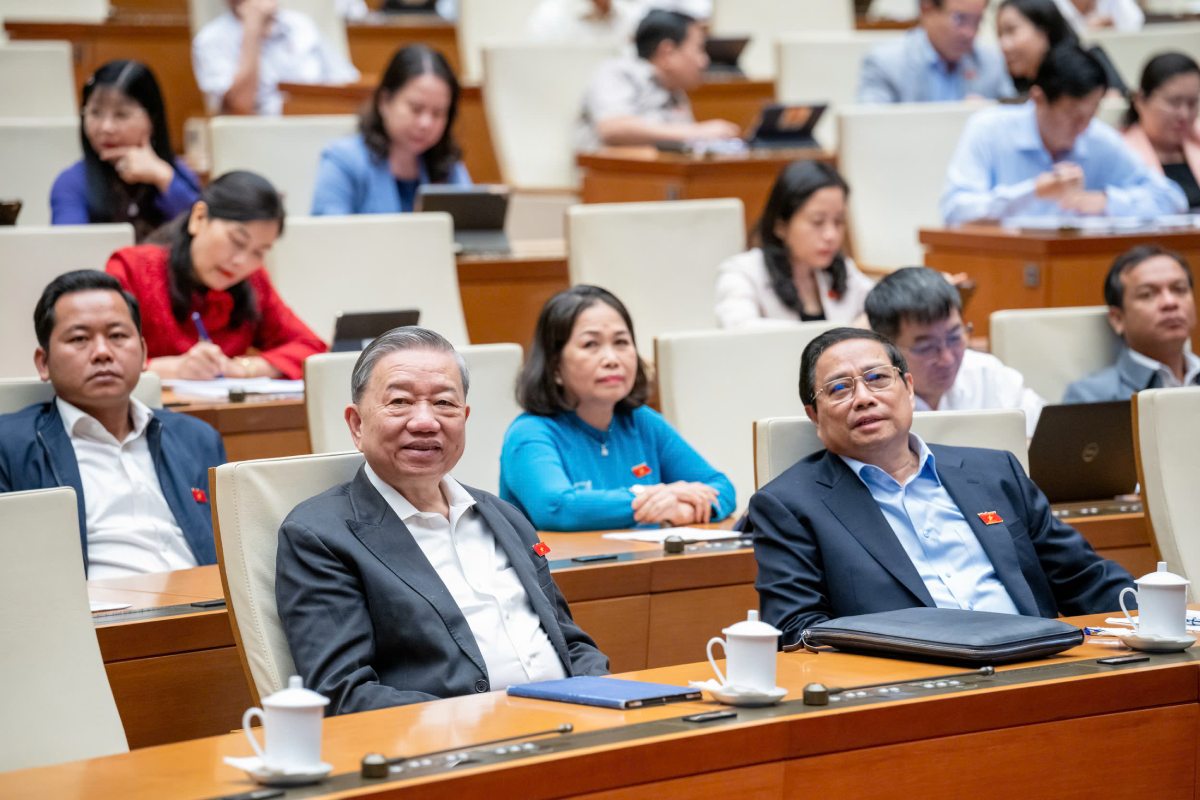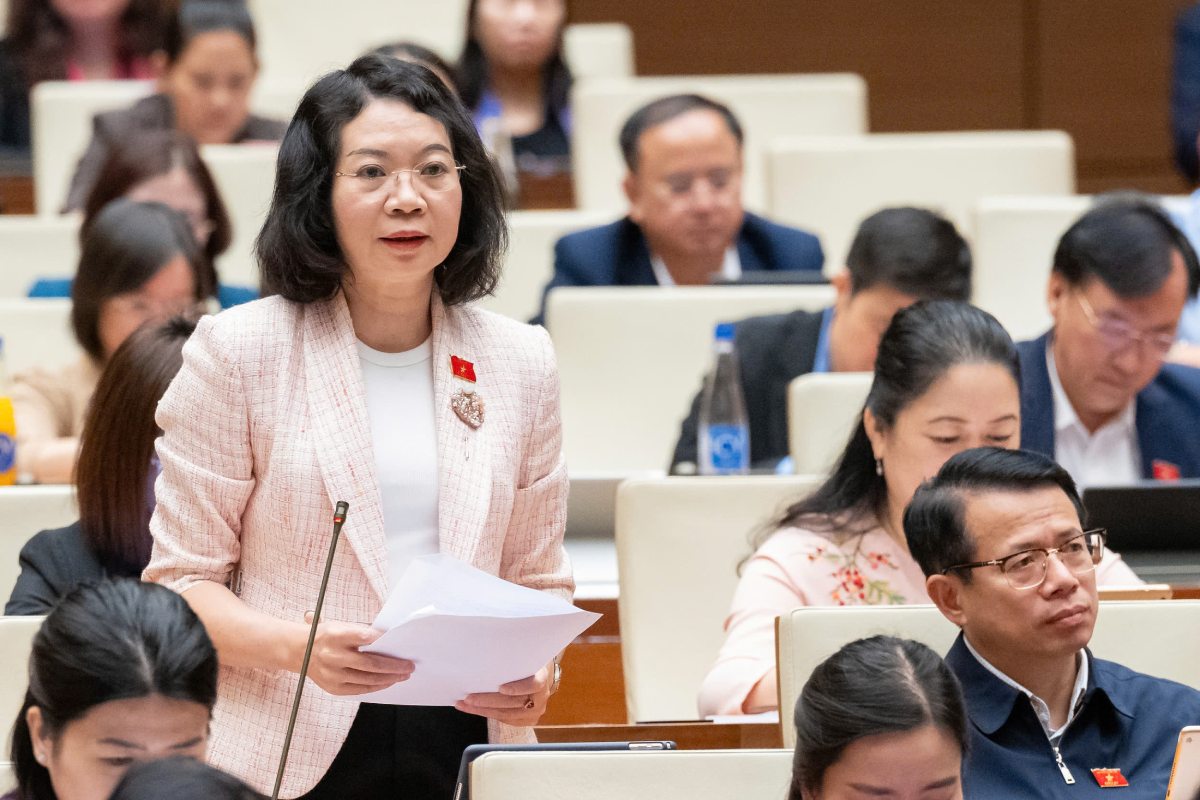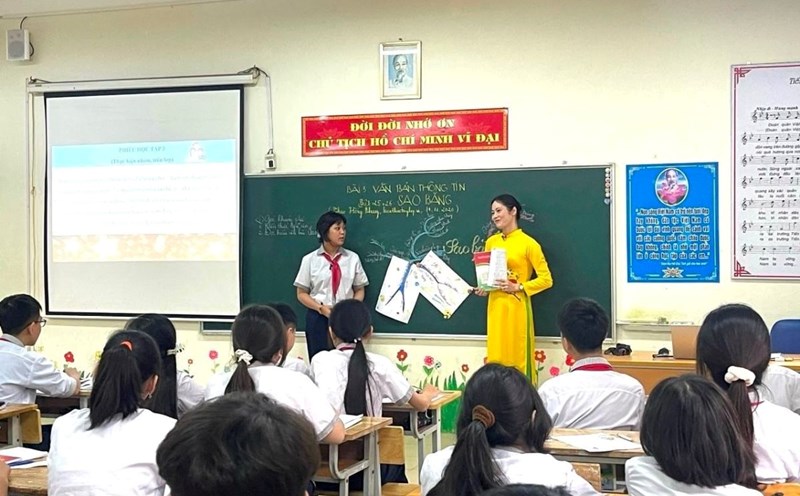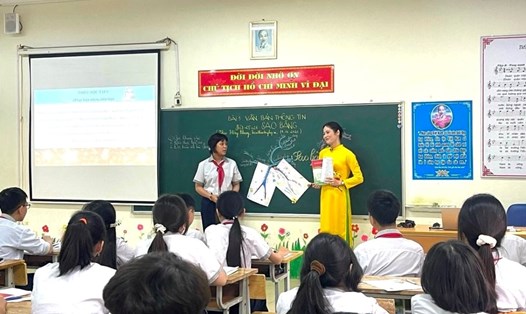On the morning of November 4, continuing the 8th Session, the National Assembly discussed in the hall about socio-economic development.
Speaking, Vice Chairwoman of the Judicial Committee Mai Thi Phuong Hoa (Nam Dinh Delegation) said that recently the State has paid great attention to and supported the work of overcoming the consequences caused by storm No. 3, helping people who suffered damage to soon stabilize their lives.
"We appreciate the fact that the Vietnam Fatherland Front has mobilized and received over 2,000 billion VND and has published a statement to make it public and transparent to help people monitor," said the delegate.

The issue of combating waste in the public apparatus was also mentioned.
According to the delegate, in recent times, the Party and the State have paid great attention to the work of combating waste. In particular, the Politburo issued Directive No. 27-CT/TW on strengthening the Party's leadership in the work of practicing thrift and combating waste; the National Assembly conducted supreme supervision and issued a resolution on practicing thrift and combating waste.
Most recently, the Central Steering Committee on anti-corruption and anti-negativity has been given the additional task of preventing and combating waste, focusing on preventing and combating waste in the management and use of public finance and public assets. In particular, General Secretary To Lam's article on combating waste has correctly assessed the current situation, pointed out the causes, and proposed many very accurate solutions.
According to the delegate, this is a strong and profound message encouraging all people, especially officials in the public apparatus, to reconsider the way of using and managing resources throughout society.
The article assessed that waste is still quite common, in many different forms, and has caused many serious consequences for development.
According to the delegate, this situation has the following main causes:
Firstly, there are still some officials who have a mentality of taking lightly the fight against waste in management activities. For a long time, they have only considered waste as a behavior that needs to be overcome but not to a serious level, and have not considered waste as a dangerous behavior for society.

Second, some officials still think that waste is only the ineffective management and use of state capital and assets. But in reality, there is also waste of opportunities and time.
"A foreign expert has stated that wasting opportunities and time is the biggest waste of intangible assets of human beings. Once opportunities and time pass, they will never return.
As General Secretary To Lam has stated, cumbersome administrative procedures waste the time of people and businesses. Fear of responsibility and pushing work will waste development opportunities for the locality and the country," the delegate emphasized.
Third, the disease of achievement, the mindset of tenure, the subjective mindset of some officials who want to carry out projects near their locality, ministry, and within their term as leader to demonstrate their capacity. The dynamism but due to hasty work, subjective calculation, and failure to fully comply with procedures, does not bring about the desired results.
Recently, the Central Steering Committee on preventing and combating corruption, waste and negativity has pointed out and named a number of projects as the most specific examples.
Fourth, sanctions for waste have been issued but their deterrence is not high, mainly warning and reminder.
From there, the delegate emphasized that if we successfully fight waste like we have fought corruption in the past, our country will certainly firmly enter a new era.
Delegate Pham Van Hoa (Dong Thap Delegation) is concerned that in mountainous areas, there are accompanying minerals such as soil, rock, coal slag mixed with precious minerals that have not been exploited and are discarded, causing waste.
Delegates proposed that the Government, ministries and branches have necessary solutions to use waste rock and soil from mineral mines, coal slag from thermal power plants and power plants to replace conventional materials.











